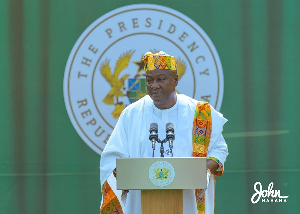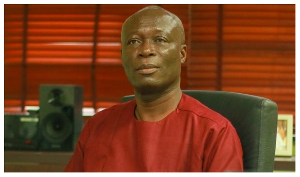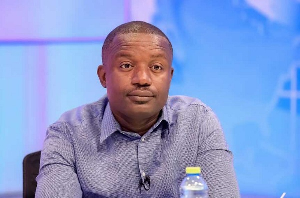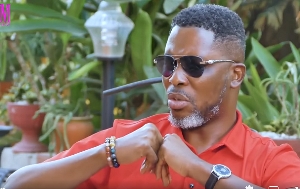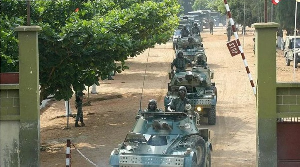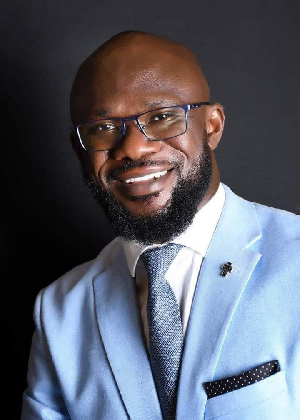One Hundred and thirty three women are running in 27 out of the 275 constituencies in Ghana’s Parliamentary race this year. This number is relatively small compared to their male counterparts who number up to one thousand three hundred and thirty two. But to some observers and gender advocates, this number, as low as it appears, represents a 30 percent improvement on previous figures.
Since Ghana ushered in multi-party politics in 1992, women’s representation in Parliament has not increased in any significant way. Women constitute over 51% of Ghana’s population; however, only eight per cent of the 230 MPs are women.
The 2008 elections could only produce 20 female lawmakers. This female MP population even indicates a reduction from the 25 (11%) the 2004 elections recorded. Per available information, developed countries such as Sweden, Netherlands, United Kingdom and the United States of America have high female representation in their legislatures because of deliberate policies they adopted in the past.
On the global scale, Ghana ranks 122 out of 190 countries according to the Inter-Parliamentary Union (IPU).
Rwanda ranks first on the world scale with 56.3 per cent female representation in parliament, Senegal comes sixth with 42.5 per cent, South Africa eighth with 42.3 per cent, Mozambique ranks 12th with 39.2 per cent and Zambia ranks 105th with 11.5 per cent female representation. Others such as Uganda rank 21st with 35.0 per cent, Algeria ranks 27th with 31.3 per cent, South Sudan 26.5 per cent, Sudan ranks 47 with 24.7 per cent while Mali ranks 113th with 10.2 per cent representation.
The above statistics puts Ghana in bad light especially when one considers the country as the beacon of democracy in the sub-region. This low representation of women causes some disquiet in the camp of gender advocacy groups across the country. Women in Law and Development in Africa, (WiLDAF) is one of such platforms. WiLDAF has since 2004 organized workshops and seminars aimed at increasing women’s participation at all levels of governance. Under the leadership of Ghana's National Programs Coordinator for WiLDAF, Bernice Sam, they first started with the Women in Politics Project, which began in the Ahanta West District of the Western Region where the primary aim was to get women representation at the district assembly platform.
The project, which was spread across the nation, according to Bernice Sam, yielded some result. “We trained the assembly members to understand gender and got the women begin to talk in the assembly,” She observed. This initial move was necessary if you ask me because as in many parts of the world, Ghana’s women are limited to specific roles. They are discouraged by circumstances from venturing into fields traditionally reserved for men. These limitations are further exacerbated by a few factors such as cultural socialization and the low economic status of women in our country.
Until recently, girls in Ghana have had less access to education. This presents a problem for them growing up as it deprives them the opportunity to broaden their horizon and stretch their potentials. Eventually, they have little or no access to the job market and other good sources of income. Even those who have access to employment have to work themselves out of pigeonholes and usually compete under very unfair conditions.
The current state of affairs as painted above presents the average woman with difficulties in their quest to live normal lives and according to Bernice Sam, this means “they have few opportunities to run for political office where a certain level of education and income to fund a political campaign are required.
“One other thing I have also noticed in my work with these women is that they are very good campaigners, organizers and support mobilizers, but lack the confidence to contest elections and from participating in political life. And when they do, they prefer to take up roles as women organizers in their political parties. This is quite unfortunate but it appears the traditions and culture of this nation dictates the path of the women.”
The Problem
Some people have argued against ‘why women must be considered for critical roles in governance’. The question is, why not. The point has been made time without number. But it’s important to note, if men are allowed to sit and make decisions that directly affect women and children, why won’t the women who know more about these choices make them for themselves.
As a reporter, I have covered a number of events that seek to ensure full female participation at all levels and aspects of nation building. But the efforts of advocacy groups as I observe are hindered by one thing; Tradition. Traditional norms have been a big part of the problem since time immemorial.
Traditionally, the man is the head of the family. Men are the natural leaders of the home and society. It is almost a taboo for a woman to assume that role or even attempt it. For that reason, a woman entering into a race for any leadership position is seen as one who has dared to defy the order. The consequences are dire!
A conversation with a female candidate, Hannah Bissiw of the Tano South Constituency gives an indication that these limitations are real in their most subtly binding forms even in today’s politics. This should be worrying to us as a nation!
A lot of advocacy work has been done by gender groups to get Ghana to sign and ratify several UN Charters and Conventions, which emphasize women’s political participation and representation at all levels of power. But for these high-capacity advocacy works, the situation would have been poorer.
Although a few women have broken out of the shackles of traditional norms and upset the old order, low socio-economic status and low self-esteem still remain huge challenges confronting our women. Also, multiple roles they play in the home and community including taking care of children, the sick and the elderly in society with or without the support of a man, are equally distractive.
The electoral system which many have criticized as unfavorable to the female candidates, the lack of party support for the candidates as far as distributing resources for campaigning is concerned and the male dominated working pattern in parliament all present serious obstacles the poor woman has to surmount.
Parliamentary Candidate for the Tano South Constituency in the Brong Ahafo Region, Hannah Bissiw speaks from her perspective as a first time female contestant and she thinks affirmative action is a sure way of increasing the number of female MPs.
She opined that, “we have a long way to go as a country in this area. If we really want to push women in this pursuit, every political party would have to make a firm commitment and decision. Every political party has a stronghold, the main political parties especially. Should the National Democratic Congress or the New Patriotic Party leave such areas for women to compete; we will definitely have a woman victorious from those constituencies. Of course we have had women compete and come out victorious in the past, but they fall out.
“Look at honorable Cecilia Dapaah of the NPP, won every time until one day she decided she would not run again. I thought she could have continued but for some of the limitations women face. It could be for very good reasons but she has a family and I don’t think her husband will be happy having her serve Ghana for so long when he needs his wife. And that will not be entirely his fault because every man would want the integrity of his wife preserved and some of the things said about women in elected office are despicable. People assume too that any woman in high office slept with a man to get there. Men especially talk as if women don’t deserve to be in any leadership position and the only way to get there is to sleep with them. Excuse me, but I just have to say it as it is. So once you don’t, you are their enemy. Merit or no merit, they will speculate you slept with a man to get there.”
This is not the first Candidate to make this case in Ghana or elsewhere.
Going back to Rwanda which ranks first in ensuring female representation in parliament, one would want to ask ‘how did they achieve this’? Why has it been so difficult for Ghana to make this transition? When will we as a people take steps to bridge the existing gender gap so women too can be seen for what they can contribute and not necessarily viewed as people from the 'weaker' sex or as second class citizens? This is discouraging and morale-sapping for the hard working lady.
We have made some strides but there is certainly more room for improvement and this can happen if we stop paying lip service and window dressing the issues. The woman is equally capable.






